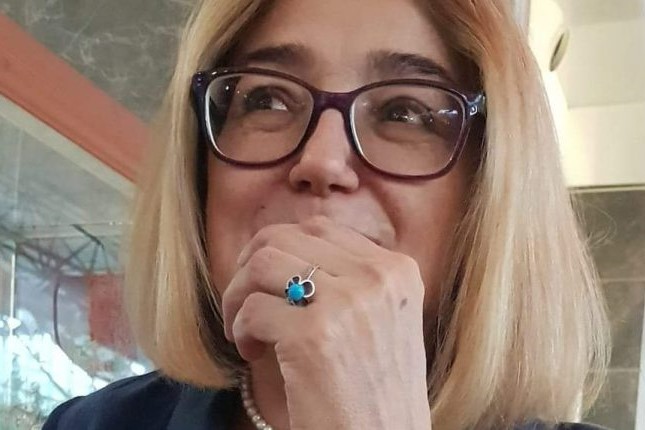This past week, the international panel discussion on Tajik-Russian relations in the humanitarian sphere was held in Dushanbe, while the regular meeting of the topographical working groups of the governmental delegations of Tajikistan and Kyrgyzstan on the delimitation and demarcation of the Tajik-Kyrgyz border took place. Tajikistan and Iran signed more than 25 documents during a two-day meeting of the intergovernmental commission on economic cooperation, and in just one week, the Supreme Court of Tajikistan sentenced four civil society activists from Gorno-Badakhshan Autonomous Region (GBAO) to long terms of imprisonment.

Image source: Tajik Press
On December 6, the Russian House in Dushanbe hosted an international expert discussion on Tajik-Russian relations on humanitarian issues (Sputnik, RitmEurasia). The main theme of the meeting was the monitoring of the humanitarian field in 14 countries, mainly in the CIS, over the last 3 years. A particularly interesting topic was the exploration of norms, rules and traditions within the society and dialogue with the authorities. There were two dimensions to the study; the first one was on how the manageability of information and communication within the country is achieved, and the second, is an assessment of the friendliness of the communication regime within Russia. Some of the problems, according to experts gathered at the roundtable in Dushanbe, is the interest in Russian-language online media in the region, compared to resources financed by Western funds, and Russian-language educational establishments. There are now 35-40 such schools in the whole country.
From the 1st to the 6th of December, a regular meeting of the topographical working groups of the Tajik and Kyrgyz governmental delegations on the delimitation and demarcation of the Tajik-Kyrgyz border was held in Batken, Kyrgyzstan (Asia Plus). The parties completed a draft description of the borderline, totaling 17.66 km. There is no information on the exact area on which the borderline is drawn. The next meeting is scheduled to take place in Tajikistan, but the dates are yet to be determined.
Elsewhere, the meeting of the intergovernmental commission on economic cooperation was held in Tehran on 5-6 December, where Tajikistan and Iran signed more than 25 documents on economic cooperation in what was described as a fruitful bilateral meeting (Asia Plus, NourNews). During the meeting, the two sides discussed ways to develop and expand bilateral cooperation in the fields of economy and trade, investment, science and education, culture, sport, health, water and energy, television and radio, transport, and alike. The Iranian Energy Minister Mehrabiyan said the two-day meetings were fruitful and agreements were reached in:
- Electricity supply;
- Education and cultural heritage - Rudaki school to open in Dushanbe;
- Medicine and transport – parties agreed to cooperate in 10 priority areas of medicine, which are expected to be implemented in the near future;
- Transport, agriculture, communication and technology.
On December 9, Radio Ozodi reported on the sentencing of civic activists Ulfatkhonim Mamadshoeva, Khursand Mamadshoev, Faromuz Irgashev, and Khushruz Jumaev, with the following description;
- Journalist and civil activist from GBAO, Ulfatkhonim Mamadshoeva, was sentenced to 21 years in prison by Tajikistan's Supreme Court. Mamadshoeva's trial took place behind closed doors and no further details are made public. Mamadshoeva, 65, worked as an independent journalist and ran the public organization “Law and Honor”.
- Khursand Mamadshoev, brother of Ulfatkhonim Mamadshoeva, was sentenced to 18 years in prison. Two sources familiar with the matter told Radio Ozodi on the 9th of December that Mamadshoev's trial took place in the detention center with the doors closed and no relatives were invited to the hearing. Khursand Mamadshoev was a member of the "Commission 44" established in Khorog during the November 2021 events by GBAO civil society activists who mediated between the protesters and local authorities and helped to end the protests. The court found him guilty of organizing unrest in Khorog and "organizing a criminal association".
- Faromuz Irgashev, a lawyer and unregistered presidential candidate in Tajikistan's 2020 elections, received the heaviest punishment, as the Supreme Court sentenced him to 30 years in prison. There is no official account of the verdict against Faromuz Irgashev. Faromuz Irgashev and the civic activists detained with him are accused of receiving financial assistance from abroad, organizing an unsanctioned rally, and participating in a criminal association.
- Khushruz Jumayev, a civil activist, was sentenced by the Supreme Court to eight years in prison. After the November protests in Khorog, Jumayev began helping members of the public through "Commission 44", which along with the law enforcement agencies, was investigating the circumstances surrounding the death of Gulbiddin Ziyobekov. Khushruz Jumaev was accused of organizing an unsanctioned rally and publicly calling for a forced change of the constitutional order.
Meanwhile, the US State Department expressed concerns over lengthy prison sentences for Tajik journalists, bloggers and civic activists who have exercised their right to freedom of opinion. "We demand that trials be conducted in an open and fair manner and that those detained undeservedly be released", reads the State Department’s statement. Human Rights Watch has also asked the government of Tajikistan to stop the illegal arrests and unfair trials of GBAO residents.

